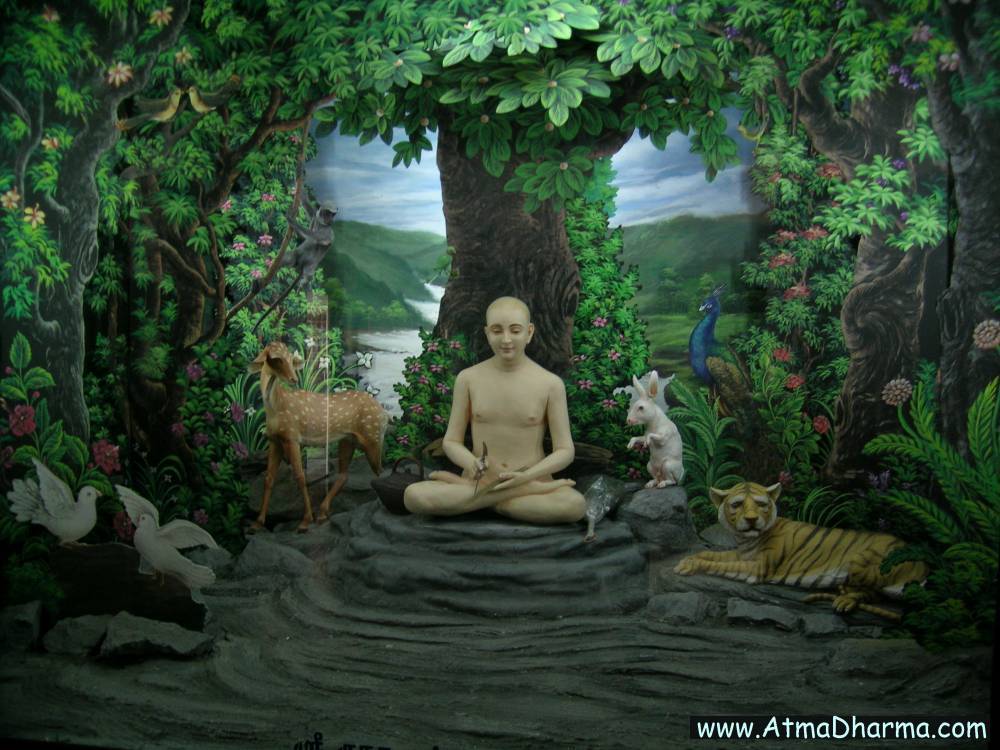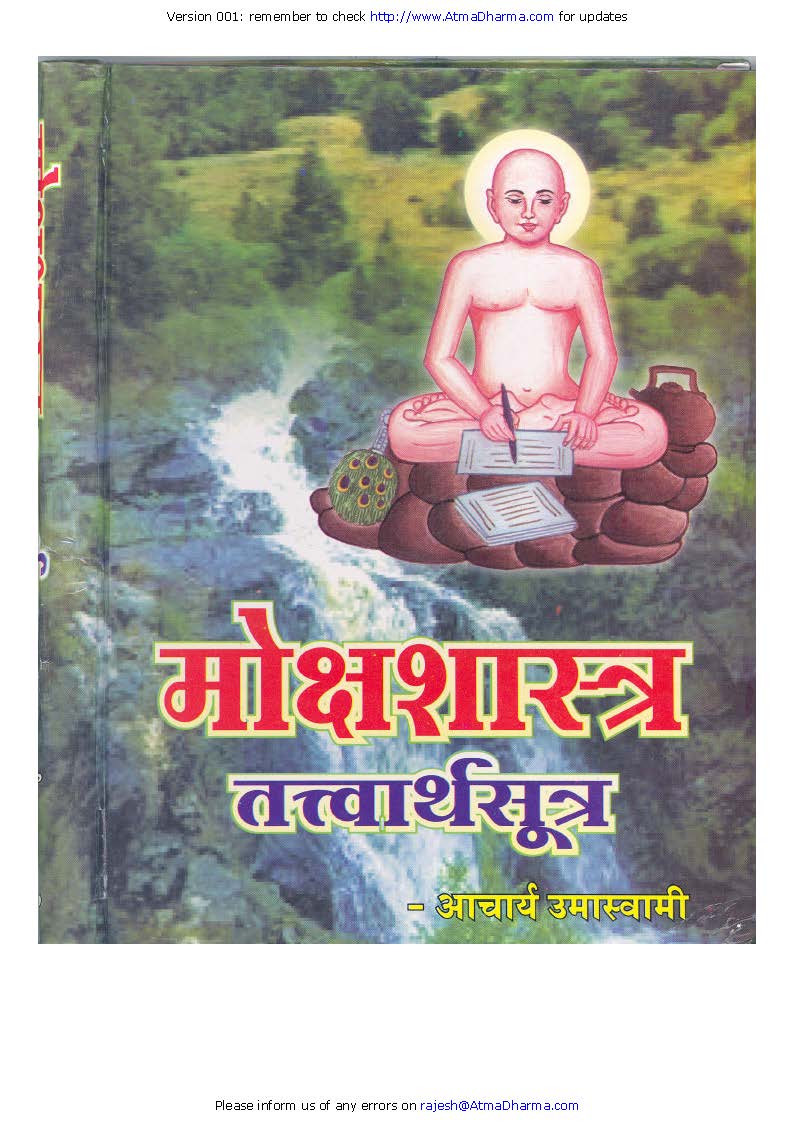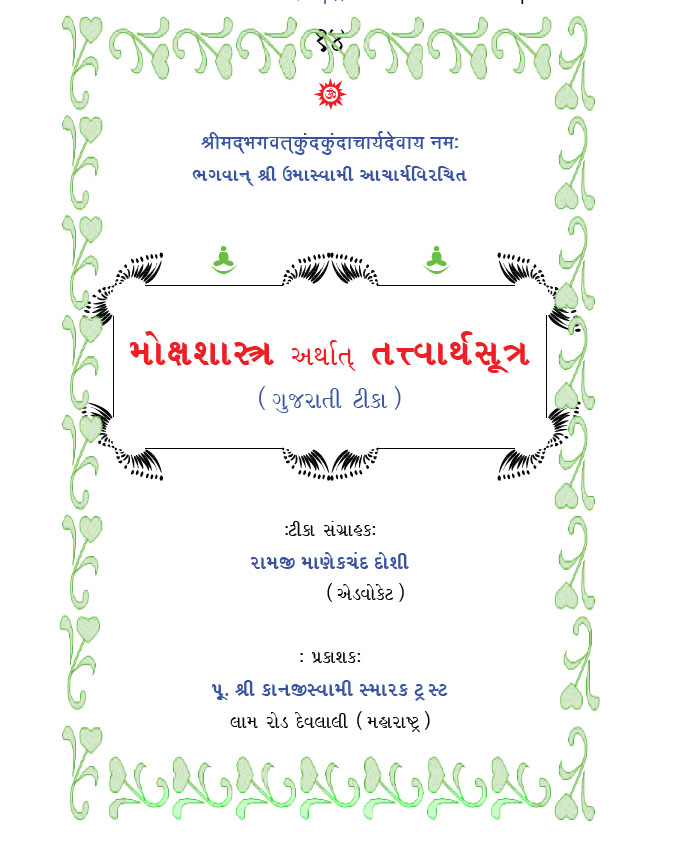Books by: Acharya Umaswati
Search by
Filter by

Umaswati, also spelled as Umasvati and known as Umaswami, was an Indian scholar, possibly between 2nd-century and 5th-century CE, known for his foundational writings on Jainism. He authored the Jain text Tattvartha Sutra (literally '"All That Is", also called Tattvarthadhigama Sutra).[3] Umaswati's work was the first Sanskrit language text on Jain philosophy, and is the earliest extant comprehensive Jain philosophy text accepted as authoritative by all four Jain traditions. His text has the same importance in Jainism as Vedanta Sutras and Yogasutras have in Hinduism.
Umaswati is claimed by both the Digambara and Śvētāmbara sects of Jainism as their own.[7][4] On the basis of his genealogy, he was also called Nagaravachka. Umaswati was influential not only in Jainism, but also other Indian traditions over the centuries. The 13th- to 14th-century Madhvacharya, founder of Dvaita Vedanta school of Hindu philosophy, for example referred to Umaswati in his works as Umasvati-Vachakacharya. Some in the Digambara Jain tradition believe him to be the chief disciple of Acharya Kundakunda.[1][9] However, this is disputed by some Western scholars.
Umaswati, was an Acharya (head of the monastic order, teacher) and therefore one of the Pañca-Parameṣṭhi (five supreme beings) in Jaina tradition. The theory mooted by Umaswati is that rebirth and suffering is on account of one's karma (deeds) and a life lived in accordance to vows of virtuous living with austerities cleanses this karma, ultimately leading to liberation. The main philosophy in Umaswati's Tatvartha Sutra aphorisms is that "all life, both human and non-human, is sacred."
Biography
Umaswati was born in Nyagrodhika village. His father was Svati and his mother was Uma. Umaswati was thus called as Svatitanaya after his father's name and as Vatsisuta after his mother's lineage. His name is a combination of the names of his parents.[8] Umaswati is also known as Vacaka-sramana and Nagaravacaka. Digambara call him Umasvamin.
According to Vidyabhusana's book published in 1920, Umaswati died in 85 CE. More recent scholarship, such as by Padmanabh Jaini on the other hand, places him later, likely in the 2nd-century. Modern scholars such as Walter Slaje state that there are disagreements in dating Umaswati, and even whether Umaswati and Umaswami were two different persons, who lived sometime between 2nd- to 5th-century CE. Paul Dundas agrees that Tattvartha Sutra is among the oldest surviving Jaina philosophy text along with Bhagavati Sutra and the older Rsibhasitani, but dates Umaswati and the text to the 4th- to 5th-century.
Umaswati authored his scriptural work the Tattvartha Sutra when he was in Pataliputra or Kusumapura (now known as Patna, Bihar).He was the first Jain thinker to have written a philosophical work in the sutra style.
Umaswati, along with Kundakunda, is one of the two revered ancient scholars of Jainism. In Digambara tradition that reveres Kundakunda, Umaswati is considered as a disciple of Kundakunda. However, they differ in two ways. One, Kundakunda wrote in Prakrit, while Umaswati used Sanskrit. Second, their doctrines differ in the details, such as those about anekantavada. Neither mentions the other in his writings, and scholars have debated if there was any link between the two, and who preceded the other.
Philosophy
Chart showing Samyak Darsana as per Tattvarthasutra
Umaswati in his Tattvartha Sutra, an aphoristic sutra text in Sanskrit language, enunciates the complete Jain philosophy. He includes the doctrines on the subjects of non-violence or ahimsa, Anekantavada (simultaneous existence and non-existence of something), and non-possession. The text, states Jaini, summarizes "religious, ethical and philosophical" themes of Jainism in the second century India.[24] The Sūtras or verses have found ready acceptance with all the sects of Jainas, and on which bhasya (reviews and commentaries) have been written. Umaswati states that these beliefs are essential to achieving moksha or emancipation.
His sutra have been variously translated. The first verse of Tattvartha Sutra has been translated as follows:
"The enlightened darsana (world view), enlightened knowledge and enlightened conduct are the path to liberation" – Translated by Nathmal Tatia
"Right faith, right knowledge and right conduct constitute the path to liberation" – Translated by Vijay Jain[26]
— Umaswati, Tattvartha Sutra 1.1
Published books : 3
Designation : Acharya
Sect : Shwetambar





